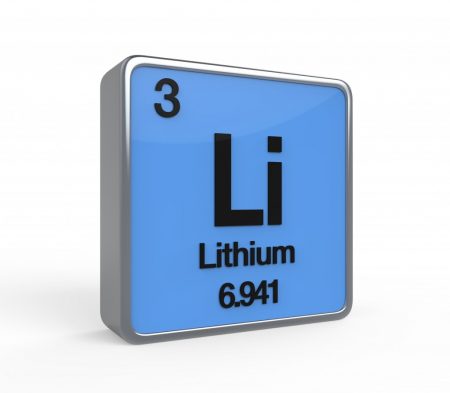Small Percentage of Patients Do Not Re-Respond After Stopping Lithium
 Researcher Ralph Kupka reviewed the literature on the small subgroup of patients who do well on long-term lithium treatment, stop taking the drug, suffer a relapse, and then fail to re-respond as well as they had (or, in some cases, at all) once they begin taking lithium again. These observations are supported by small case series, and appear to occur in approximately 10 to 15% of patients who stop taking lithium. Slowly tapering off lithium treatment did not seem to influence whether or not patients would re-respond to lithium later, while there was some indication that more time off lithium could lower the likelihood of a good re-response.
Researcher Ralph Kupka reviewed the literature on the small subgroup of patients who do well on long-term lithium treatment, stop taking the drug, suffer a relapse, and then fail to re-respond as well as they had (or, in some cases, at all) once they begin taking lithium again. These observations are supported by small case series, and appear to occur in approximately 10 to 15% of patients who stop taking lithium. Slowly tapering off lithium treatment did not seem to influence whether or not patients would re-respond to lithium later, while there was some indication that more time off lithium could lower the likelihood of a good re-response.
Earlier data from researcher Trisha Suppes suggested that slowly tapering off lithium treatment (over about two weeks) is superior to tapering rapidly (over a few days), and a slow taper reduced the rate of relapse. Kupka added that he would taper lithium even more slowly (over a period of one to two months) so that early signs of relapse could more readily be observed.
The New News About Lithium
Robert M. Post, Editor-in-Chief of the BNN, recently published an open access article in the journal Neuropsychopharmacology, “The New News About Lithium: An Underutilized Treatment in the United States.” Here we summarize the main points of the publication, including: the multiple benefits of lithium, its relative safety, predictors of lithium responsiveness, and principles for treatment.
Benefits of lithium
Lithium prevents both depressions and manias in bipolar disorder, and also prevents depressions in unipolar disorder and can augment antidepressant effects acutely. In addition to these mood benefits, lithium has anti-suicide effects. Lithium also enhances the efficacy of atypical antipsychotics and other mood stabilizers when used in combination with them.
Lithium is good for the brain. It has been shown to reduce the incidence of dementia. Lithium increases the volume of the hippocampus and cortex, and can increase the production of new neurons and glia. It also protects neurons. In animals, lithium has been shown to reduce lesion size in neurological syndromes that are models for human disorders such as AIDS-related neurotoxicity, ischemic/hemorrhagic stroke, traumatic brain/spinal cord injury, Huntington’s disease, Alzheimer’s disease, amyotrophic lateral sclerosis (ALS or Lou Gehrig’s disease), fragile X syndrome, Parkinson’s disease, retinal degeneration, multiple sclerosis, alcohol-induced degeneration, Down’s syndrome, spinocerebellar ataxia-1, and irradiation.
Lithium’s benefits include more general ones as well. It can increase the length of telomeres, bits of DNA on the ends of chromosomes that protect them during replication. Short telomeres have been linked to various illnesses and the aging process. Lithium also decreases the incidence of several medical illnesses and enhances survival.
Side Effects Are Often Benign, Treatable
Lithium side effects are more benign than many people think. Even low levels of lithium may be therapeutically sufficient. Read more


